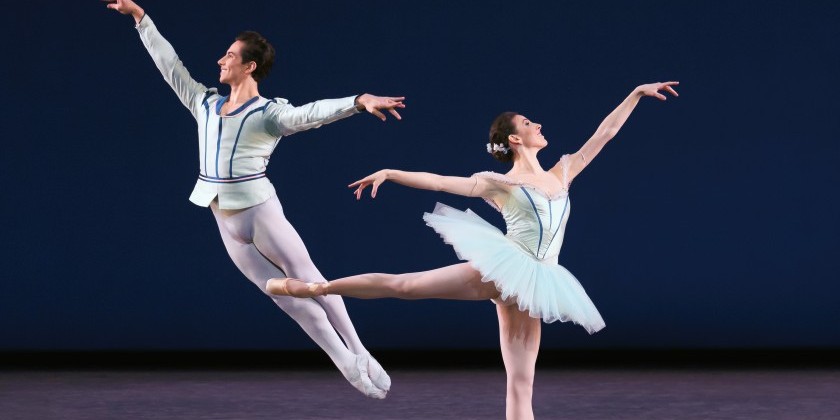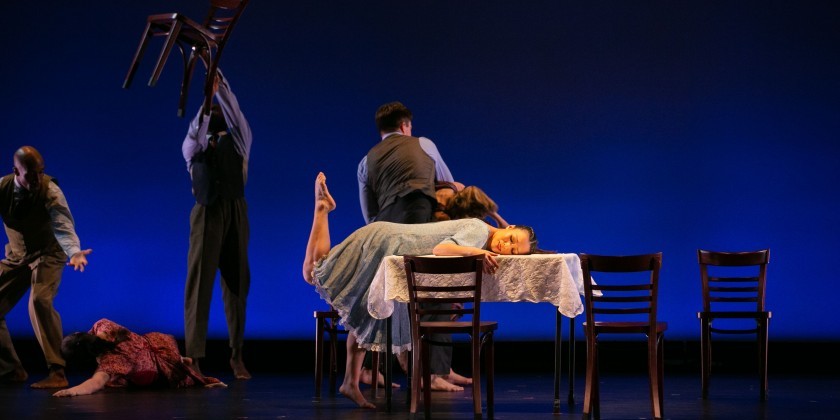IMPRESSIONS: Alison Cook Beatty Dance and Anabella Lenzu, Presented by Valerie Green/Dance Entropy’s Take Root

The night that you stopped acting
Choreography and Performance: Anabella Lenzu
Direction: Daniel Pettrow // Videography Todd Carroll
Mahaway: Spring Eternal
Choreography: Alison Cook Beatty
Performance: Alison Cook Beatty Dance and Infinity Dance Theater
Score: Dorian Wallace // Musical Performance: Tenth Intervention
Even if you are eager to return to live performances, and are tired of watching dance at home on your computer, you might want to consider taking in one more virtual dance event, especially if you are a fan of Anabella Lenzu. An enthralling performer, whose autobiographical dance-theatre solos never fail to provoke, Lenzu proves just as captivating virtually as she is in person. Her 2020 virtual solo The night that you stopped acting is available for viewing, as part of a shared program with Alison Cook Beatty Dance, presented by Take Root, Valerie Green/Dance Entropy’s monthly series supporting established dance artists in disseminating their work to the public.
Lenzu’s two most appealing traits as a performer are her willingness to boldly expose her inner landscape and her constant acknowledgment of the important presence of her audience. Surprisingly, in this virtual, filmed in black-and-white, text-driven work, perhaps best described as a monologue-with-movement, both of these qualities register as forcefully as they do onstage. Kudos to director Daniel Pettrow and videographer Todd Carroll!

Lenzu, who hails from Argentina, describes the 26-minute solo as a deep examination of the absurdities and ironies of her life as a woman, mother, and immigrant artist. Yet while she digs deeply into her personal anxieties, her performance never feels self-indulgent, as it’s clear that she’s doing it all for us, her audience. Most of the time, we see only her face, big, full-screen, staring out at us against an empty white background. Nothing is competing for our attention, or hers. It’s a highly focused conversation, from which we are afraid to look away, fearful of neglecting the role we clearly play in the work. When Lenzu dances – bouncing her plump body in uninhibited response to Latin rock music by Charly Garcia — the camera moves back to reveal more of her body, yet we never see her below the waist. (Might this be a comic reference to us all having lived the past year entirely on Zoom?) Making prevalent use of meta-text, at each step of the way Lenzu tells us exactly what she is going to do before she does it, underlining how our understanding of what she does is just as important as her doing it. When she grows involved in watching video clips of her younger self in performance — faintly, yet discernibly, projected in the background — she suddenly turns and points sharply at us, checking to make sure we’re still with her. Though sprinkled with humor throughout, Lenzu’s work ends on a heavy note. In a voice so powerful as to be almost frightening, she closes by exclaiming, “I am an artist, and this is for me.” Yes, it sounds vain, but what she wants us to understand is that, as an artist, she carries not only the means, but also the responsibility, to divulge what’s inside.

Splitting the program with Lenzu’s engaging solo is Mahaway: Spring Eternal, a hackneyed ensemble piece, choreographed by Alison Cook-Beatty, that I would be inclined to suggest skipping, if not for its music. A choreographic bore, the 53-minute narrative dance is set to a thrilling score by Dorian Wallace, which is played live (for this video-recorded 2019 performance at Riverside Theatre) by the progressive music collective Tenth Intervention.
Made in 2013 to commemorate the 100th anniversary of the famously shocking Paris premiere of composer Igor Stravinsky and choreographer Vaslav Nijinsky’s seminal modernistic ballet The Rite of Spring, Cook-Beatty’s work is capably danced by a 25-member cast of performers drawn from her own classically-based modern dance company and from Infinity Dance Theater, a troupe of dancers with and without disabilities, some of whom move in wheelchairs. Based on a Mayan folktale, the work purports to tell the story of a mother skunk, her baby girl, and a protective jaguar, yet it’s difficult to follow what’s happening as the derivative choreography contains little in the way of gestures or individualized movements to establish characters and their relationships to one another. The piece is built of modern-dance vocabulary seen countless times before. Cook-Beatty does, however, have a sharp eye for spatial composition and forms her ensemble — adorably costumed as skunks by Zoë Alexandra — into striking stage pictures and multi-body sculptures. And the enrapturing music — sweet violin sounds contrasting with foreboding percussion — creates a satisfying drama of its own.
The Take Root series will present one more program virtually, in August, and will return to live performances in September.

Take Root: Alison Cook Beatty Dance and Anabella Lenzu can be seen from July 16-December 31, 2021, for a pay-what-you-wish donation at danceentropy.networkforgood.com/projects. More information HERE.
The Dance Enthusiast Shares IMPRESSIONS/our brand of review, and creates conversation.
For more IMPRESSIONS, click here.
Share your #AudienceReview of performances. Write one today!
The Dance Enthusiast - News, Reviews, Interviews and an Open Invitation for YOU to join the Dance Conversation.
Share Your Audience Review. Your Words Are Valuable to Dance.
Are you going to see this show, or have you seen it? Share "your" review here on The Dance Enthusiast. Your words are valuable. They help artists, educate audiences, and support the dance field in general. There is no need to be a professional critic. Just click through to our Audience Review Section and you will have the option to write free-form, or answer our helpful Enthusiast Review Questionnaire, or if you feel creative, even write a haiku review. So join the conversation.












